Thematic Tafsir: A Topic-Based Approach to Understanding the Qur’an
The historical development of tafsīr (Qur’anic exegesis) can be traced back to the time of the Prophet Muhammad (peace and blessings be upon him), continuing through his ṣaḥābah (companions) and their tābiʿīn (successors). However, none of their tafsīr were systematically written and preserved as independent works of exegesis until the emergence of great scholars like Ibn Jarīr al-Ṭabarī, who authored the monumental Jāmiʿ al-Bayān ʿan Taʾwīl Āy al-Qurʾān. This is why Imam al-Nawawī praised it in his work Tahdhīb al-Asmāʾ wa-l-Lughāt, stating, “No one has composed a work like Ibn Jarīr’s book on tafsīr.”
Later, when weak narrations (ḥadīth daʿīfah) and unacceptable opinions began to infiltrate works of tafsīr, leading even to severe conflicts, classifications such as Tafsīr al-Maḥmūd (commendable exegesis) and Tafsīr al-Madhmūm (blameworthy exegesis) emerged. These classifications represented an effort to preserve the discipline’s authenticity. Over time, this field underwent significant transformations, adapting to various historical and intellectual contexts, including the era of artificial intelligence.
Among the advancements in this discipline was the emergence of diverse styles of exegesis. Tafsīr can generally be classified into four categories based on their interpretative styles:
- Tafsīr Ijmālī (concise exegesis)
- Tafsīr Taḥlīlī (analytical exegesis)
- Tafsīr Muqārin (comparative exegesis)
- Tafsīr Mawḍūʿī (thematic or topic-based exegesis).
This study focuses on the last category: Tafsīr Mawḍūʿī.
General Description of Tafsīr Mawḍūʿī
Literally, the term Tafsīr Mawḍūʿī is a combination of two words: tafsīr and mawḍūʿī. The word mawḍūʿī is derived from the root waḍʿ (وضع), which means "to lay down," "to fix," or "to place something in a specific position." The verb waḍʿa conveys meanings such as setting principles, establishing foundations, or compiling concepts.
Technically, as defined by most scholars, Tafsīr Mawḍūʿī is a discipline that deals with addressing specific issues in light of the Qur’anic objectives. This is achieved by collecting and examining scattered Qur’anic verses related to a particular theme or topic across one or more sūrahs, analyzing them in a systematic manner under specific conditions. The goal is to clarify their meanings and link them cohesively to present a comprehensive understanding of the subject.
Unlike traditional tafsīr, where verses are interpreted sequentially according to the order of the muṣḥaf (the codified Qur’an), Tafsīr Mawḍūʿī organises Qur’anic verses by subject. The exegete collects verses addressing the same theme or issue and interprets them collectively rather than following the order of their placement in the Qur’an.
Emergence of Tafsīr Mawḍūʿī
First Phase
It is widely accepted that the term Tafsīr Mawḍūʿī is a modern concept introduced in the 20th century; however, its origins can be traced back to the time of the Prophet Muhammad (peace and blessings be upon him). This is evidenced by the ḥadīth narrated by ʿAbdullāh ibn Masʿūd (may Allah be pleased with him), which describes an incident linked to thematic Qur’anic interpretation.
When the verse:
"It is ˹only˺ those who are faithful and do not tarnish their faith with falsehood…"
(Surah al-Anʿām 6:82)
was revealed, people became concerned and approached the Prophet (peace and blessings be upon him), saying:
"O Messenger of Allah! Who among us has not done wrong?"
The Prophet (peace and blessings be upon him) replied:
"It is not as you think. Have you not heard what Luqmān said to his son: 'O my son, do not associate [shirk] anything with Allah. Verily, associating others with Him is a great injustice.'”
This refers to the verse:
"O my son! Do not associate anything with Allah ˹in worship˺. Surely, associating others with Him is a great injustice."
(Surah Luqmān 31:13)
This incident exemplifies the thematic approach of interpreting Qur’anic verses collectively to address a specific subject, in this case, the concept of ẓulm (injustice) and shirk (associating partners with Allah).
Second Phase
The second phase of Tafsīr Mawḍūʿī began when scholars systematically employed this approach to explain specific Qur’anic terms or concepts by examining related āyāt under varying contexts. This period saw the emergence of dedicated works exploring the thematic connections within the Qur’an.
One of the earliest contributions was by Muqātil ibn Sulaymān al-Balkhī (d. 150 AH), who authored Al-Ashbāh wa-l-Naẓāʾir fī al-Qurʾān. He was followed by Yaḥyā ibn Sālim (d. 200 AH), who built upon this thematic approach. Later, al-Rāghib al-Aṣfahānī contributed significantly with his renowned work, Al-Mufradāt fī Gharīb al-Qurʾān, which delved into the meanings and indications of Qur’anic terms in various contexts.
Third Phase
In this phase, scholarly works emerged that examined the chapters and verses of the Qur’an by exploring thematic connections between them, beyond focusing solely on linguistic meanings. This phase saw the rise of studies addressing specific themes, such as “Women in the Qur’an” or “Mercy in the Qur’an.” Notable contributions from this period include Aḥkām al-Qurʾān by al-Jaṣṣāṣ and Taʾwīl Mushkil al-Qurʾān by Ibn Qutaybah. These works explored not only the linguistic aspects but also the broader implications and themes within the Qur’anic text.
Fourth Phase
The fourth phase is often associated with the emergence of the al-Manār school, which marked a shift in tafsīr towards contextualising the Qur’anic chapters and verses in relation to the realities and challenges faced by the Muslim community in the modern era. This approach linked Qur’anic meanings and objectives with contemporary social, political, and reformative issues (al-fikr al-siyāsī wa-l-ijtimāʿī wa-l-iṣlāḥī).
One of the prominent thematic works from this era is Dirāsāt fī al-Fikr al-Siyāsī wa-l-Ijtimāʿī wa-l-Iṣlāḥī by Muḥammad ʿAbduh. However, it is important to note that his interpretations and ideas have faced significant criticism. For example, scholars such as Muḥammad Saʿīd Ramaḍān al-Būṭī have deeply critiqued ʿAbduh’s views and methodology.
The Difference Between the Method of Thematic Exegesis and Other Exegesis Methods
Thematic Exegesis vs General Exegesis
Thematic exegesis (tafsīr mawḍūʿī) differs significantly from general exegesis (tafsīr ʿāmm) in its approach and scope. In general exegesis, interpreters follow the sequential order of the verses as they appear in the Qur’an, addressing all topics that emerge from the text. By contrast, thematic exegesis organises verses based on a specific topic, irrespective of their placement in the Qur’an. The focus in thematic exegesis is on studying one particular subject in depth, collecting relevant verses from across the Qur’an to construct a comprehensive understanding of the chosen theme.
Thematic Exegesis vs Analytical Exegesis
Analytical exegesis (tafsīr taḥlīlī) adheres to the order of verses within a chapter (sūrah), exploring the meanings of words and sentences in great detail. It often addresses multiple topics that arise naturally in the text, with the depth of interpretation influenced by the exegete's methodology and expertise. Thematic exegesis, on the other hand, is not bound by the order of verses in the Qur’an. Instead, it prioritizes thematic coherence, focusing on a single topic and analysing only what is necessary to uncover the depths of that subject. This makes thematic exegesis more specialised, whereas analytical exegesis provides a broader, verse-by-verse interpretation.
Thematic Exegesis vs Comparative Exegesis
Thematic exegesis is distinct from comparative exegesis (tafsīr muqārin) in its purpose and approach. While thematic exegesis focuses on a single Qur’anic topic, gathering and interpreting all relevant verses to explore the subject in detail, comparative exegesis examines how various interpreters have explained the same verse. Comparative exegesis aims to present differing viewpoints and highlight similarities and variations among the works of multiple exegetes.
Classification of Thematic Exegesis
The works related to thematic exegesis (tafsīr mawḍūʿī) can be categorised into the following three types:
- Thematic Exegesis Concerned with Terminology
This category focuses on specific words or terms used in the Qur’an. The exegete collects all the verses in which the term and its derivatives appear and then analyses them to deduce their meanings and indications (dalālāt) from a Qur’anic perspective. Such works aim to present a comprehensive understanding of the term within the Qur’anic framework. An example of this type is Gharīb al-Qurʾān, which explores the meanings of uncommon or complex Qur’anic terms. - Thematic Exegesis Concerned with a Specific Theme or Topic
In this category, the exegete selects a specific theme or topic mentioned in the Qur’an and gathers all the verses connected to it. The verses are then interpreted collectively to understand the Qur’anic perspective on that theme. This approach is particularly useful for exploring concepts like iʿjāz al-Qurʾān (the inimitability of the Qur’an) or justice, where the focus is on uncovering the holistic treatment of the subject in the Qur’an. - Thematic Exegesis Concerned with a Specific Surah
The third type involves the study of a particular chapter (sūrah) of the Qur’an. The exegete examines the main ideas and themes discussed in that chapter and presents them as the subject of study. This approach helps in understanding the structure, purpose, and central message of a specific sūrah.
Significance of Thematic Tafsir
The emergence of new disciplines such as psychology, sociology, and others has motivated exegetes to delve into the Qur’an with a fresh perspective, analysing verses to derive insights that address contemporary issues. Thematic exegesis (tafsīr mawḍūʿī) has proven to be particularly effective for this purpose, enabling scholars to reach profound conclusions and gain a deeper understanding of the Qur’an. For instance, the discovery of the numerical codes within the Qur’an, which sparked amazement across the Muslim world, was a result of employing this method.
Moreover, when modern criticism of Islam emerged, particularly regarding topics such as gender equality, thematic exegesis became an indispensable tool. This approach allowed scholars to comprehensively study themes like "Women in the Qur’an," offering well-founded responses to such critiques. Thematic exegesis has significantly expanded the scope of Qur’anic studies, revealing the miraculous and multifaceted nature of the Qur’an. It continues to demonstrate the timeless relevance and adaptability of the Qur’an to address evolving questions in various fields of knowledge and life.
In contemporary times, thematic exegesis has become a widely used method of interpretation, making invaluable contributions to the field of Qur’anic studies. By systematically collecting and analysing verses on specific topics, tafsīr mawḍūʿī provides deeper and more comprehensive interpretations. This method has not only broadened our understanding of the Qur’an but has also highlighted its extraordinary qualities and its ability to address diverse fields of knowledge. Thematic exegesis continues to bridge the gap between Qur’anic wisdom and modern challenges, showcasing the Qur’an as a timeless source of guidance.
About the author:
Madappally Muhammed Jasim is a student in the Department of Qur’an and Related Sciences at Darul Huda Islamic University. As part of a student exchange program, he is currently pursuing a semester at the International Islamic University Malaysia (IIUM), specialising in Qur’an and Sunnah studies.
References
- Manāhil al-ʿIrfān fī ʿUlūm al-Qurʾān by Shaykh ʿAbdul ʿAẓīm al-Zarqānī
- An Analysis of Historical Development of Tafsir Mawḍūʿī by Ammar Fadhil
- Al-Itqān fī ʿUlūm al-Qurʾān by Jalāl al-Dīn al-Suyūṭī
Disclaimer
The views expressed in this article are the author’s own and do not necessarily mirror Islamonweb’s editorial stance.

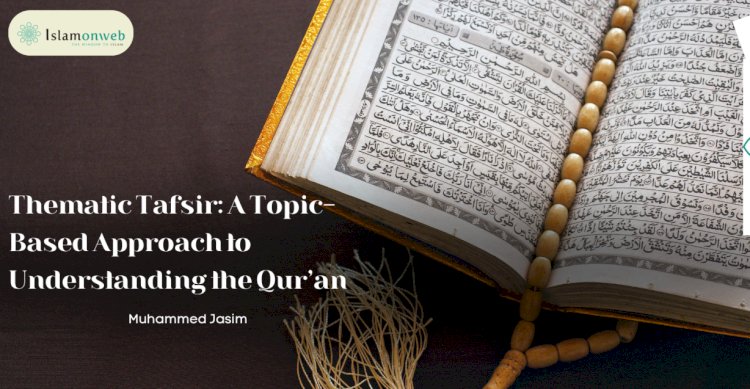



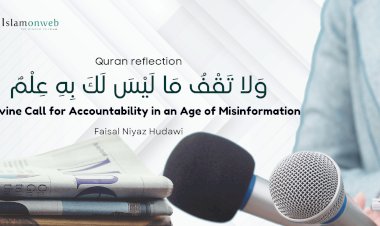
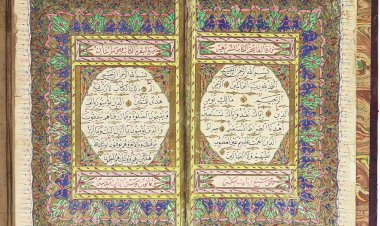


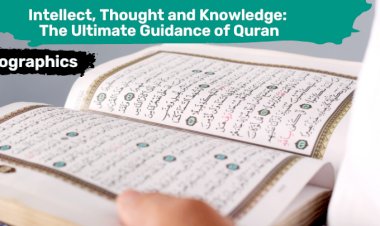
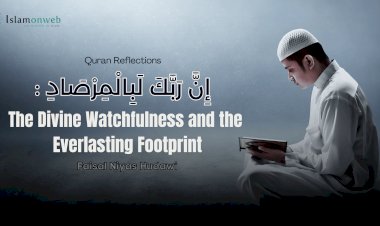














Leave A Comment